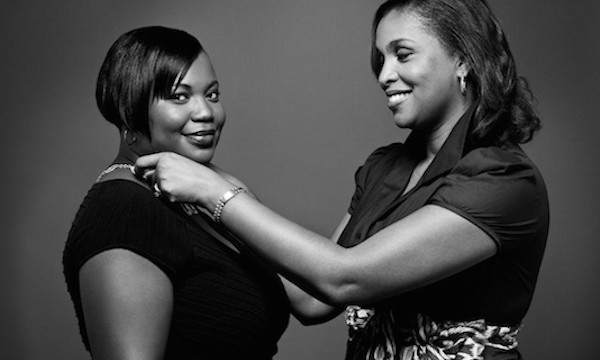Citigroup’s Elinor Hoover on Diversity, Goal-setting, and Preparing for Success
October 21, 2016 | Filed in: Woman of the Week
Let’s just start with her title: Elinor Hoover is the Global Co-Head of the Consumer Products Group and Vice Chairman of Capital Markets Origination at Citigroup. She serves on the Management Committee of Citi’s Corporate and Investment Bank, and co-heads the division’s Diversity Committee. In sum, she’s a BFD in the banking world.
But when she began her career, finance wasn’t necessarily the most logical path. A classically trained pianist who graduated from Yale with a degree in music and a minor in molecular biophysics and biochemistry, Elinor surprised her parents when she announced she was going into finance. 27 years later, she’s at the top of her game—and the top of her field. Her words, below.

Elinor wears the Toi dress and the Broadway belt.
I WANTED TO SET THE WORLD ON FIRE with my music. But when I entered Juilliard for high school, I realized that a lot of people wanted to do that; so unless you’re number one, two, or three in the world, unless you’re a phenomenal pianist, it’s very hard. I’m proud of having had the courage to switch gears and choose the financial services industry. Trusting my instincts and taking that turn in the road has made all the difference for me. And there’s a discipline and a focus that I learned as a musician that translates to the work I do now.
I WAS ALWAYS EXCEPTIONALLY GOAL-ORIENTED. I had a goal for Saturday; I had a goal for Sunday; I had a goal for the weekend; I had a goal for next weekend. This past summer, I went home to help clean out my mother’s basement, and my sister laughed hysterically because she found an old series of diaries I kept when I was younger—one page had one goal, the next page had another goal. But as you get older, you learn that you can’t control everything. My father used to say, “Chance favors the prepared mind.” Sometimes luck will fall your way, and you have to be prepared to receive it.
I KNEW EARLY ON that I wanted to enter an area of finance that was very analytically-based, where the more you make your numbers, the easier it is to demonstrate achievement and then hopefully get recognized for it. At first, I gravitated to a sales and trading environment where there were very clear metrics for success, and I sought out mentors who were willing to take a risk on me. I can’t underscore enough the importance of having sponsors in your career who will give you reach assignments that allow you to step out of your comfort zone so you can get more visibility.

Elinor wears the Etsuko dress in crackle.
WE STRUGGLE TO BRING ENOUGH WOMEN and diverse talent into the financial services industry. It’s something we have to constantly work at. We have to rethink how we recruit to create an environment that supports more diverse talent. At Citi, we’ve instituted a formal program that allows us to increase the number of women we hire by targeting specific women we think have potential. Of the ones we targeted this past year, I think almost all of them, if not every single one of them, got offers.
EARLY IN YOUR CAREER, look for an “apprenticeship,” if you will. It doesn’t matter what field you’re in as long as you feel like you’re really learning in an extensive way. A financial analyst program appeals to so many recent graduates because you get a front-row seat to observe what’s happening in the world—whether it’s advising companies that are looking to merge, or seeing how markets are reacting to geopolitical issues or changes in the price of oil. The goal is to gain a skill-set that you can ultimately leverage in something you choose to do longer term.
IN MY FIELD, YOU WANT CLOTHING that’s conservative enough for a boardroom, but that also has elements of style that show that you’re a woman. Simplicity, versatility, comfort—MM.LaFleur brings all that together in a way I find really impressive. I keep talking about it at work. Actually, one of our directors joked to me that I could be an MM.LaFleur advertisement.
ONE TIME, I DREW THE SHORT STRAW when it came to giving an analyst feedback about what she was wearing at work. Her shirt fell a little too high and her pants fell a little too low—she was showing a lot of skin for a financial services workplace. I remember asking, “Are you trying to get fired?” And she said “Yes!” It ended up being a conduit through which we could talk more openly about what was causing her consternation at work. Interestingly enough, she went back to dressing normally and ultimately got promoted all the way up to director.
Photos by Frances F. Denny








